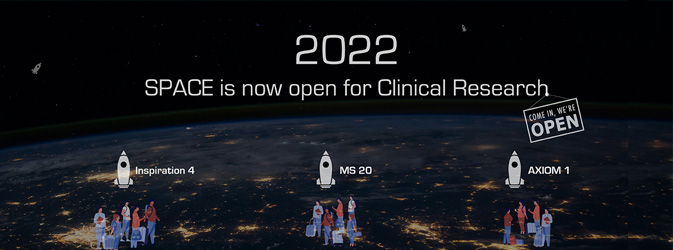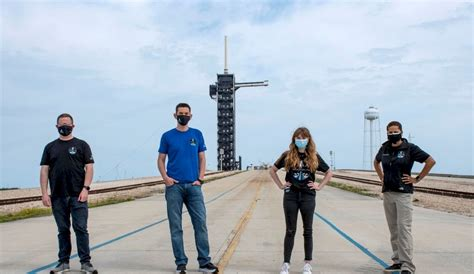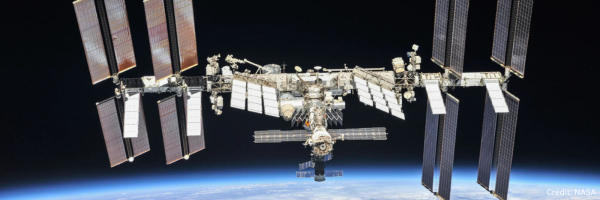🚀 The SPACE is now open for Clinical Research – Are you ready?

It was the year 1747 when the first known randomized clinical trial (although this can be disputed) happened aboard a ship on Britain’s Royal Navy. The trial was conducted by James Lind who “recruited” (of course not in literal terms of how recruitment is defined today!) 12 men to test whether acids can help cure scurvy!
The past year 2021, specifically September 15 marks another important milestone in the history of clinical trials when we began clinical research with 4 civilians traveling to space. In all of human history, fewer than 600 humans have reached space, but all of them have been highly trained and fit astronauts. With the growing industry of space tourism and common people (mostly super rich for now) going to space, it presents an opportunity to study what happens to the human body in space due to prolonged stay in an environment with zero gravity, radiation, and confinement. As humanity plans its mission to Mars and deep space, it is important to determine what new diagnostics and therapeutics will be needed for the space fliers to take care of themselves in the absence of a whole team of healthcare professionals.
What exactly did we study from the 4 civilians who went to space?
The Inspiration 4 mission that carried the 4 civilians for 3 days in space had an elaborate set of IRB approved research studies conducted sponsored by the Translational Research Institute of Space Health (TRISH) at Baylor College of Medicine in Texas. The study participants collected their blood and saliva sample and tested it in-flight for a range of biomarkers of stress, inflammation and immunity fluid shifts. They recorded ECG activity, blood oxygen levels and heart rates using Apple Watch. Their behavioral and cognitive performance were measured using an app that required them to take several tests before and after the flight such as reaction time. A tablet with an accelerometer was used to see how well they could stay balanced – before, during and after the flight.
It is certainly very exciting to see the use of remote research data collection using apps and devices (Apple Watch, portable ultrasound, mobile accelerometer). The pre-post data collection happened from the launchpads and landing sites with data analysis and storage at remote locations making this a truly first decentralized clinical research for space health!
What other space clinical research missions have happened since then?
There were 2 more missions since Sept 15, 2021 that conducted elaborate clinical research activities with civilians contributing to the body of space health knowledge.
MS-20: This mission, launched on December 8, 2021 had 2 space tourists traveling to the International Space Station for 11 days. Similar sets of pre and post mission biomedical data were collected to understand ECG, sleep, heart rate, cognition and sensorimotor adaptation. One interesting research conducted on this mission was to understand the impact on vision due to swelling of the optic disc using a portable auto-refractor device.
Axiom-1: Launched on April 8, 2022, This mission had all private astronauts who spent 17 days in the International Space Station where they conducted extensive research and STEM outreach. Among other things, a pre-post flight personality survey was performed to understand the impact of space travel on human cognition.
What is TrialX doing with these space missions?
TrialX is fortunate to be at the epi-center of all these missions where its xPAND product is powering the centralized data storage, collection (for certain studies) and analytics. We are working with TRISH and space health research scientists to plan data collection, integration and sharing. So far the system is storing millions of health and environmental data points with a powerful analytics and visualization capability to surface trends and insights.
The elephant in the room: Can I participate and go to space? Really, I want to help! 🙂
Yea right! On a serious note, as space travel becomes more common, there will be large-scale trials to understand how different interventions can help us alleviate the impact of space on the human body. Private spaceflight participants are important to space research. As they are not trained astronauts their health profile is very different, and that can help researchers explore the effects of space on an untrained body with mild health conditions – and that sounds like most of us walking on earth!
On a “musical” note: Here is the link to – the Crew’s orbit mix – a pack full of songs the inspiration 4 crew listened to while in space: https://open.spotify.com/playlist/37i9dQZF1DWUffIH68FPTm You never know, may be they were collecting some auditory data, even while enjoying music!
#spaceflights #spacehealth #spacevolunteers #spaceresearch #clinicalresearch #clinicaltrials #clinicaltrialvolunteers #patientrecruitment



